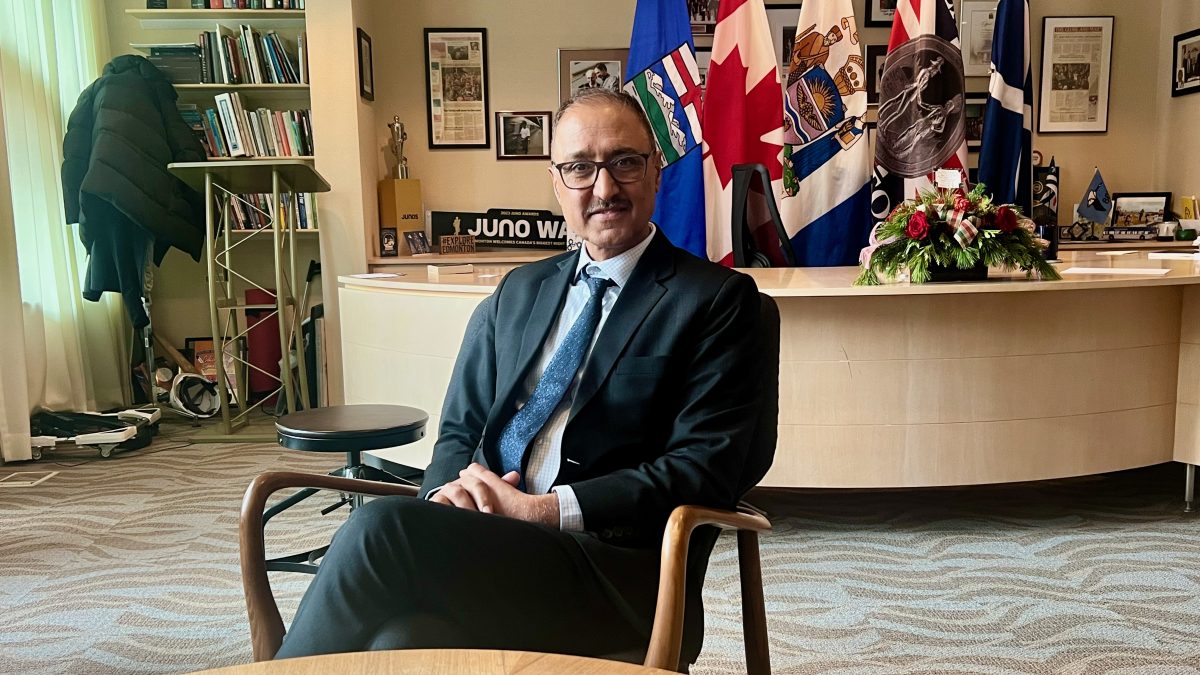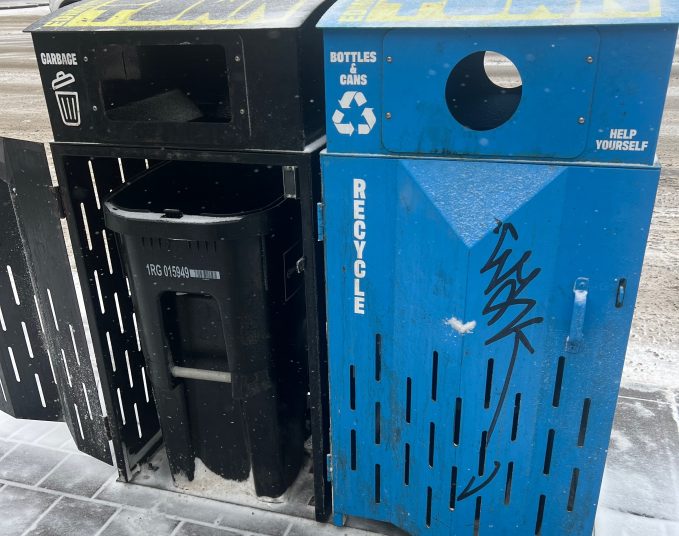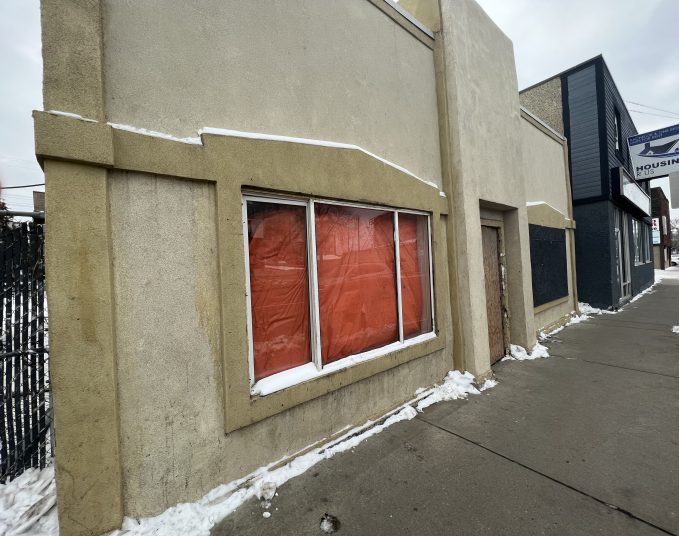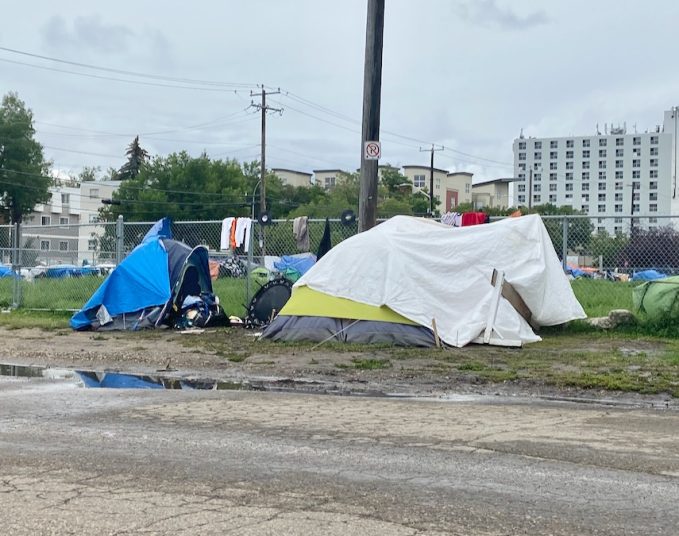Will he or won’t he? Well, that question is not going to be answered today. Mayor Amarjeet Sohi says he is still undecided whether or not he’s going to run in the 2025 municipal election. While the big question remains unanswered, the Mayor spoke to Urban Affairs about issues ranging from development to transit to taxation in this year-end interview.
Are you planning to run for a second term as mayor?
Don’t know yet. We didn’t have the chance to even think about the upcoming election in 2025. This week is the wrapping up of the year, then I’m going to sit down with my family and have a good discussion — and then also dig deeper into the implications of Bill 20. The bill introduces political parties and it has created a huge advantage for candidates running under a political banner, because the parties can spend up to three times more than an independent candidate can spend. So I’ve got to weigh all those things before I make my decision. I will make that known some time within the first quarter of 2025.
Would you consider being part of a municipal political party?
I don’t know. It’s an analysis that we would have to do as part of the overall deliberation on this.
When you were elected, you must have known this would be a challenging term, coming out of COVID lockdowns. If you could go back in time and talk to yourself four to five years ago, would you say this was even a more challenging term than expected?
We’re coming out of COVID, or at least the COVID lockdowns. But the bigger challenges came with inflation, supply chain, all of those things that affect everybody, not just the people at home. They affect city services, affect your buying power. In my life, I have never shied away from hard work, never shied away from taking on challenges, so I knew going into into this, that coming out of COVID, we will have significant challenges around mental-health issues, and we were already experiencing a drug poisoning crisis and we were seeing a spike in houselessness… I think what was unforeseen was the high rate of inflation; we did not see that coming. That caused a lot of concerns for households. But there were also a lot of concerns on the cost implications for the municipality as well, because the project costs have gone up, because construction costs have gone up. The fuel that we buy for the buses has gone up considerably.
And transit ridership?
Another unforeseen challenge that we did not appreciate earlier on in the term is that, coming out of COVID, we would see a changing pattern on how people use and consume municipal services, particularly public transit. We have seen the number of people using public transit has recovered. We actually have more people using public transit now than prior to COVID, but how they pay for it has changed. People are no longer buying monthly passes as they did before COVID. They’re using either single passes or discounted fares. And more and more people, because of poverty-related issues, are using deeply subsidized transit fares. So we have seen a $13 million drop in revenue not because of ridership, but because of the changing patterns of how people use transit. But, in this role, there are a lot of things that come your way, and I’m very grateful that this council has tackled those issues head- on.
Edmonton is facing reductions in provincial funding, aging infrastructure and skyrocketing costs. But these are issues we’re seeing in cities across Canada. How do you think Edmonton compares to other major urban centres?
You’re right that these challenges are not unique to Edmonton. But what you need to admit is that we are a regional hub for a larger regional population that Calgary is not. Being a service hub for the region does add additional dimensions to the challenges related to social issues, because a lot of people from the region who don’t have access to services in their communities come to Edmonton to access services. Then, they fall through the cracks and they end up on the street, right? And that adds to the pressures. Another unique challenge that we have that Calgary, Vancouver, Toronto, Montreal or Ottawa are not facing, is that Edmonton has the highest concentration of correctional facilities, both provincial and federal. And so when people get released from those facilities, if they are not given the proper integration support to get back into the community, they fall through the cracks, and we have seen the implications of that.
And how do you think council has responded?
I would say this council has made some very difficult decisions that other councils in other cities have not made. For example, we invested back in public transit. We put a lot of money to gain the ground that we lost on the bus service. I’m hearing from my colleagues in the major urban centres that they are actually looking at a reduction in public-transit investments. Here in the city, we have actually increased those investments. So, we have our system on a good solid footing now. We invested back in underfunded services under my leadership, and that is putting us in a good position. Another thing we have done differently is that we understood our structural budget challenges. There’s the $88-million funding gap I had to grapple with because the previous council capped the taxes artificially low or froze taxes. We are tackling that challenge. I think, by the end of 2025, we will have completely eliminated that $88-million deficit in the structural budget. So I think those are different things that we are doing differently that would leave our city in a better financial situation in a couple of years. So my goal is not to pass on the buck to future councils. My role is to fix problems today, that we actually leave the future council in a better position.
If the financial picture improves down the road, others will take credit for it.
I have never been in public office for political expediency. You know, I came to this city with very little. This city has given me so much. And it has lifted me up to be in this position and I lead with integrity and I lead with the values that compelled me to ensure that I’m making decisions that are sound. They are not driven by short-term political ambitions. They are driven by good judgment or driven by the long-term well-being of the city. That’s how I operated when I was on city council. That’s how I operate in this role.
What do you think is the biggest issue council has to deal with before the 2025 election?
One big issue that I identified, that administration has identified, is that we have an $88-million long-term structural budget deficit. Not a temporary rainy day budget deficit, a structural budget deficit. We have fixed $29 million of that. Another $59 million remains. So we tasked our administration and said you need to find efficiencies. We need to absorb that $59 million within the existing budget, without raising taxes. So I’ll be keeping very close eyes on that. The second part is over the last decade or so, we have lost a significant amount of our industrial tax base. We used to have 72 per cent of the region’s industrial tax base within the city. Now it’s down to 60 per cent. That has resulted in the rest of the property owners filling the gap. That is why we have seen increased property taxes on existing properties, because we have not grown our industrial tax base. And we have made investments in this budget to create our industrial hub. I’ll be keeping a very close eye on that because we need to accelerate our industrial growth. The third one… is that you can see candidates positioning themselves to erode or privatize or cut back on core municipal public services. I think that’s a very dangerous thing to do, because a lot of Edmontonians rely on those governmental services for their day-to-day wellbeing, such as public transit, recreation facilities, libraries and those services make people’s lives affordable. The fourth one is population growth. We are experiencing a huge amount of population growth. That population growth doesn’t generate revenue for us, right? The revenue comes later on. And so it’s very important that I continue to advocate and stand up for the city. Edmonton is not getting fair compensation from the province. And I’m going to continue to raise that point and continue to engage with that.
It is a double-edged sword that the campaign to bring people to Alberta has been so successful…
The population growth brings immediate revenue for the federal and provincial government in the form of corporate taxes, income taxes. But, for the municipality, we have to provide the services right away and the money doesn’t flow right away. But one thing that I am really grateful and proud of is that this council has made some very significant decisions to keep our housing affordable. We have reduced a lot of red tape on housing. We overhauled our zoning regulation. We issue permits very fast compared to other municipalities.
Developers talk about the need to keep things affordable, but, at the same time, the City’s saying that the more we expand outwards, the more strain it puts on municipal resources. It’s a push and pull between affordability and what we call “sprawl.” How difficult is it to wrestle with those two things?
I think it’s a balance. I think we need to focus on smart development. We need to have more density in newer areas, and we need to have more density in our mature neighbourhoods, which we are enabling now with the changes that we have made. But we also need to make sure that the growth is paying for itself. We have been subsidizing developers to the level that current property owners are absorbing the cost of suburban growth without asking developers to pay their fair share, right? Developers make a lot of money, well and fine. I have nothing against that. But we should not be subsidizing suburban growth. And that’s the conversation that I have initiated by making a motion at council, asking administration to work with the development industry as we plan south of 41st Avenue, that we need not only to understand that we need to grow, but we need to know how we grow, how fast we grow, and who pays for that growth, right? I think developers need to step up more. Developers in other cities step up more. But, in our city, I notice that, overall, we are providing a lot of subsidies for developers and those subsidies need to end.
Savvy AF. Blunt AF. Edmonton AF.




